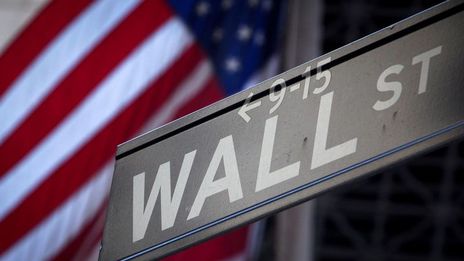The euro, however, rose off session lows as Draghi played down deploying a fresh round of cheap loans (TLTRO) to banks.
Germany's 10-year government bond yield extended falls late in the session to two-week lows of 0.179 percent, down 4.5 basis points on the day for its biggest one-day fall in three weeks. French yields also extended falls to their lowest since June 2017 to trade five basis points lower at 0.585 percent.
The euro was flat on the day at $1.13490 by 1630 GMT, having bounced off session lows of $1.13065. Against the pound it recovered from a low of 86.830 pence to trade around 87.05 pence.
"This is classic 'buy the rumour sell the fact' - the euro was under pressure ahead of the meeting, with the market expecting something dovish," said Rabobank FX strategist Jane Foley.
"And while they got it with Draghi saying there are downside risks to growth, he also wasn't overtly dovish - he said we still have upward pressure on wages and that they talked about TLTROs but decided not to act. Clearly no panic at the ECB."
Weak data earlier on Thursday showed continued deterioration in business activity across the euro bloc had fuelled speculation the ECB may be getting closer to another round of TLTROs.
While Draghi acknowledged the programme had been discussed, he said no decision had been reached.
Disappointment at the lack of detail on TLTROs initially weighed on southern Europe's bond markets in particular.
Italy's two-year bond yield was down seven basis points at 0.29 percent, while its 10-year government bond fell more than eight basis points to 2.672 percent.
The ECB left its policy stance unchanged, as expected, keeping a rate increase later in the year on the table even as the euro zone economy suffers its biggest slowdown in half a decade.
"While there was no TLTRO announcement, I didn't expect one anyway," said Arne Petimezas, analyst at AFS Group in Amsterdam. "And it doesn't matter because the ECB has no choice but to do new ones, so they will come anyway. But markets will have to wait."
The comments kept a pan-European equity index trading virtually flat at 1445 GMT, though they had risen 0.46 percent in late trade while banking stocks fell by about 0.7 percent.
Draghi's downbeat assessment of the economy -- ING Bank analysts said it was the first time since April 2017 that he had used the phrase "downside risks" on growth -- forced money markets to trim expectations of a rate rise in 2019.
Markets now price a 32 percent chance of a rate hike this year, against 45 percent earlier in the day.
Draghi, who last year guided markets to expect a rate rise towards the end of 2019, said money markets, which are pricing for a first rate rise in 2020, had understood the ECB's reaction function.
(Graphi
c: Euro, bond markets react to ECB's Draghi link:
(Additional reporting by Helen Reid, Abhinav Ramnarayan and Dhara Ranasinghe; Editing by Alison Williams and David Goodman)
By Virginia Furness and Tom Finn





















